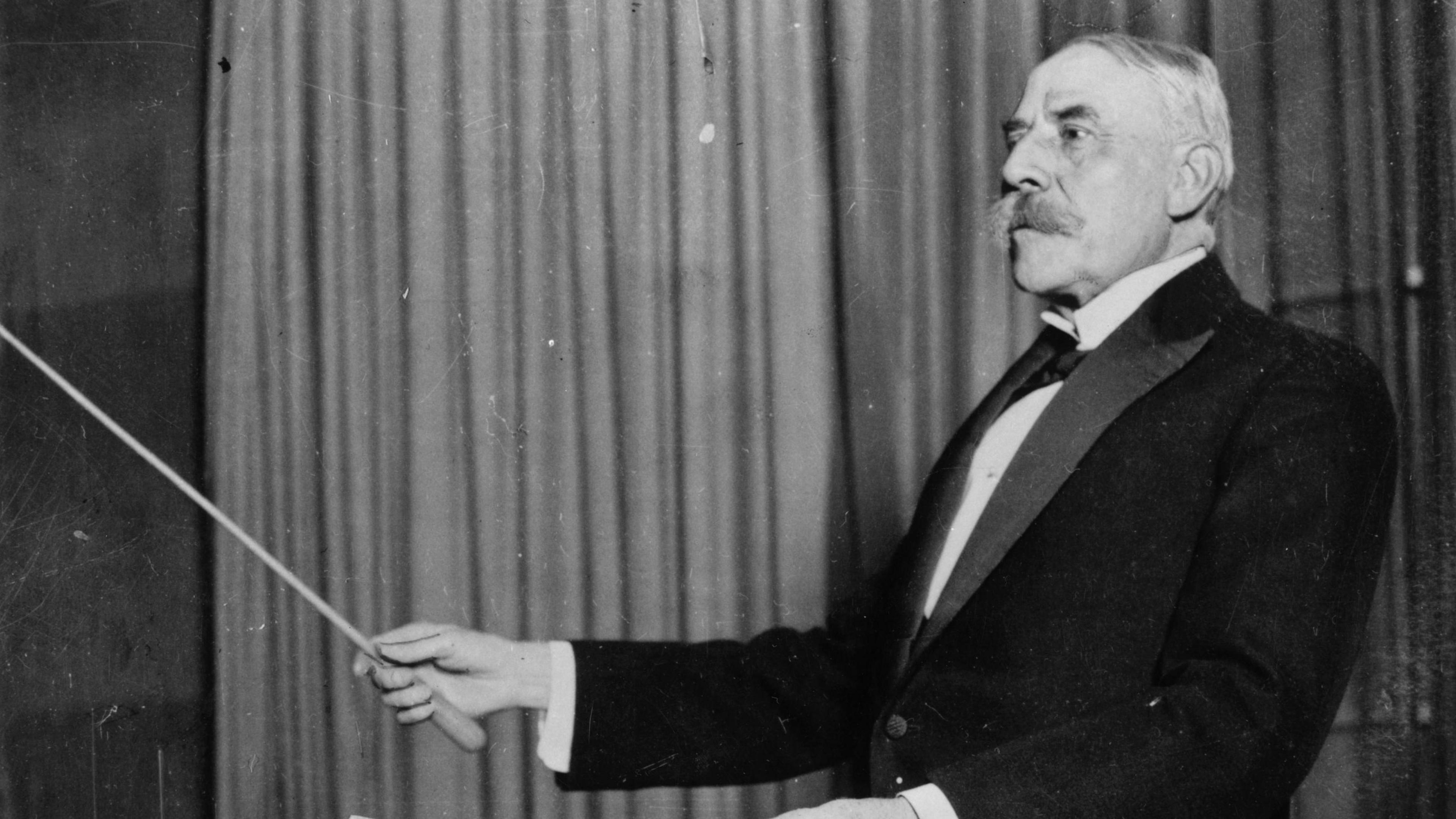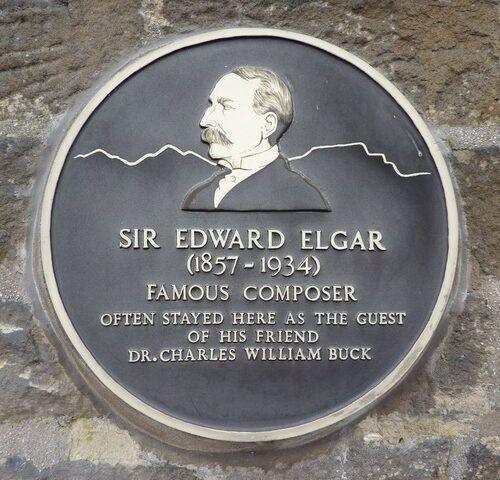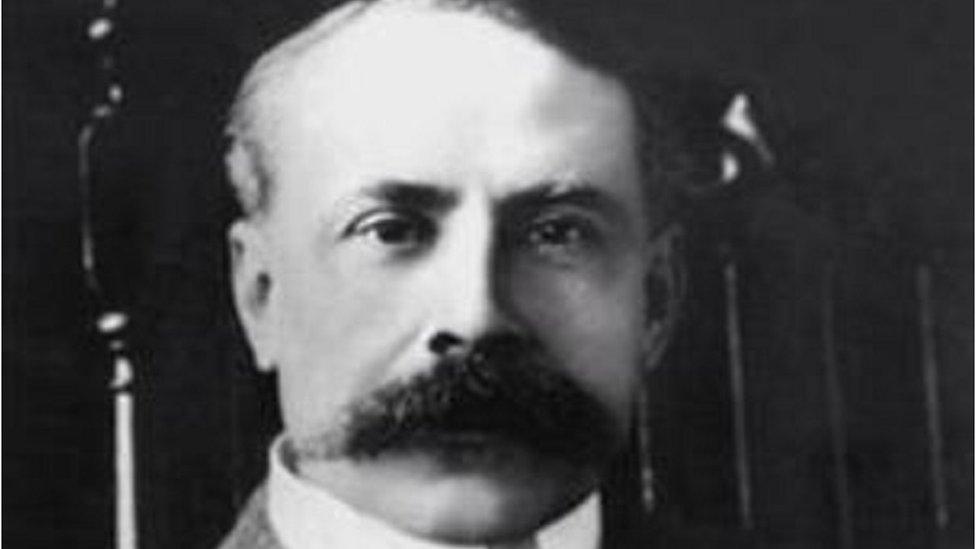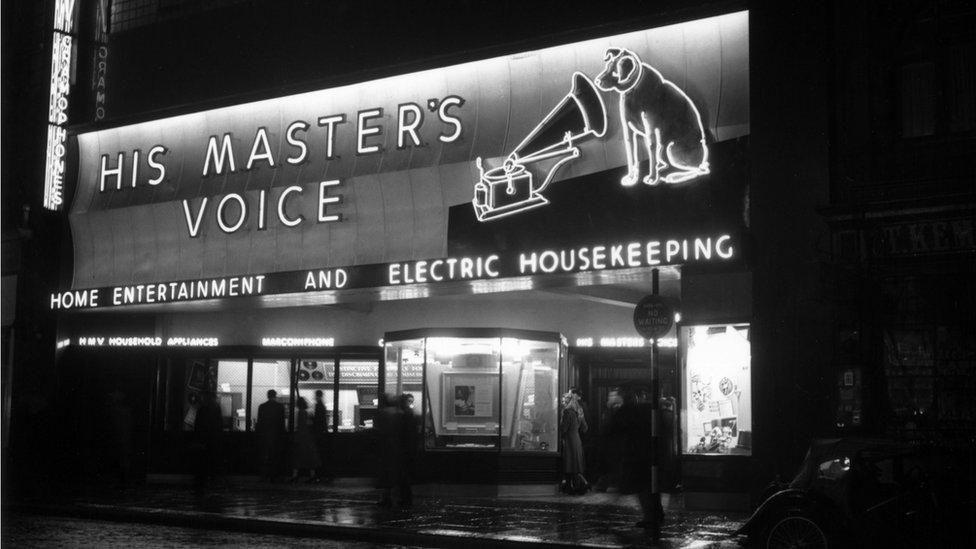Museum plan to mark composer's links with town

Sir Edward Elgar was a regular visitor to Settle from 1882.
- Published
There are plans to celebrate the link between one of England's greatest classical composers and a market town in North Yorkshire.
Sir Edward Elgar made frequent visits to Settle for around 20 years from 1882.
Local historians have submitted plans to the area's council to turn a listed building in the town into a museum.
The composer is best known for writing the music to Land of Hope and Glory.
The North Craven Building Preservation Trust aims to celebrate the inspiration Elgar drew from Settle and the Yorkshire Dales.
It hopes to create a museum and gallery in a Grade II listed building, Dr Buck's House, which was a Natwest Bank until 2017.
The building was previously owned by Dr Charles W Buck, a local GP and close friend of the composer.
A plaque on the building already commemorates Elgar's association with Settle.

A plaque commemorating the composer is already on the grade-II listed building in the centre of Settle.
Planning documents state that the condition of the architecturally significant building will continue to deteriorate without intervention.
They go on to say that “the proposals seek to find the least obtrusive, most financially viable, and sustainable solutions to halting the decay and bringing the building back into use".
Sir Edward Elgar (1857-1934) is best known for composing the music for the Land of Hope and Glory, which closes the annual Last Night of the Proms.
His other popular works include Enigma Variations, the Serenade For Strings, and his concertos for violin and cello.
Elgar also opened Britain's first HMV store on Oxford Street in London in July 1921.
North Yorkshire Council will decide on the museum plans at a later date.
Follow BBC Yorkshire on Facebook, external, X (formerly Twitter) , externaland Instagram, external. Send your story ideas to yorkslincs.news@bbc.co.uk
Related topics
- Published6 June 2018

- Published3 March 2014
- Published28 December 2018
